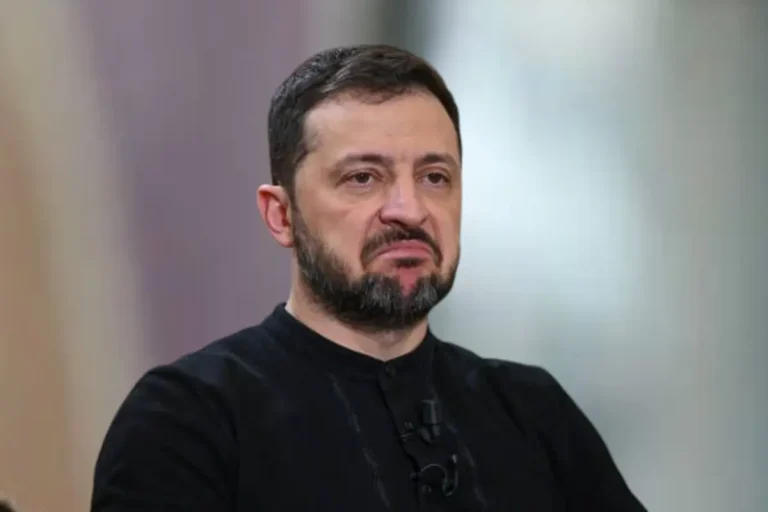
Nurse hides face entering Aachen courtroom on November 6, 2025, before sentencing, Oliver Berg/picture-alliance/dpa/AP
(Reuters) — A German court on Wednesday sentenced a palliative nurse to life imprisonment for the murders of ten patients and the attempted murder of twenty-seven others after determining he injected them with lethal doses of medication to lighten his workload during night shifts.
The verdict delivered by the Aachen regional court marked one of the most chilling healthcare crime cases in Germany in recent years, raising renewed concerns about hospital oversight and patient safety within the country’s medical system.
Prosecutors said the nurse, whose name was withheld under German privacy laws, administered sedatives and painkillers in doses intended to cause respiratory failure among his mostly elderly patients between December 2023 and May 2024.
According to the court, the motive was to reduce the burden of work by inducing rapid decline in patients whose care required intensive night supervision.
The ruling described the case as a “particularly severe instance of murder,” a classification under German criminal law that greatly limits the possibility of parole after the minimum fifteen-year term of a life sentence.
German Nurse Faces Life Sentence for Lethal Injections
Judges found that the defendant’s calculated actions showed a “total disregard for human life,” adding that his victims were individuals entrusted to his professional care at a palliative clinic near Aachen in western Germany.
During the trial, which lasted several months, investigators presented medical evidence and toxicology results linking the nurse to ten confirmed deaths caused by lethal injections of sedatives and opioid-based painkillers.
Prosecutors said the accused carefully selected vulnerable patients, targeting those who were physically weakened or nearing end-of-life care, which made detection of his actions more difficult.
The court was told that the killings occurred during late-night shifts when staffing levels were low and supervision minimal, allowing the nurse to operate without immediate suspicion.
One of the presiding judges said the pattern of deliberate dosing indicated a consistent method, describing it as “a grim manipulation of medical responsibility.”
The defense counsel argued that some deaths might have resulted from natural causes, but the court concluded that toxicological findings and witness testimonies contradicted that claim.
German Nurse Case Draws Comparison to Previous Hospital Killings
The case evoked comparisons to earlier serial killings within Germany’s healthcare system, including the notorious case of former nurse Niels Högel, who was convicted in 2019 of murdering eighty-five patients through deliberate overdoses of medication.
Authorities noted that the similarities between both cases revealed enduring gaps in the nation’s hospital monitoring system and record management of controlled substances.
The German Health Ministry has previously pledged to tighten oversight measures, following incidents where staff acted without adequate internal supervision or disciplinary checks.
Legal experts said the Aachen verdict reinforces judicial consistency in handling medical-related murder cases, where offenders used professional access to harm those under their care.
Police investigators said they were examining additional medical files connected to the convicted nurse, noting that “further suspicious deaths” could not yet be ruled out pending full forensic review.
The court emphasized that the judgment covers the most substantiated deaths but leaves open the possibility of expanding investigations if new evidence emerges.
Life Sentence Highlights Germany’s Legal Definition of Severe Murder
Under German law, a “particularly severe” murder classification typically prevents parole for decades and is applied in cases involving cruelty, motive for personal gain, or abuse of authority.
In this case, the presiding judge said the deliberate act of killing dependent patients for personal convenience constituted an extreme moral violation of medical ethics.
The verdict was delivered in a heavily guarded courtroom where the defendant appeared with his face partially concealed behind a folder, declining to make a final statement before sentencing.
Observers said the emotional impact of the proceedings was profound, as relatives of victims filled the gallery, some holding photographs of loved ones lost during the period of the crimes.
The prosecution called for life imprisonment, describing the acts as “systematic, selfish, and professionally motivated killings.”
The court agreed, declaring that the evidence established a consistent pattern of premeditation rather than spontaneous or negligent behavior.
Aachen Court Says Crimes Committed for Workload Reduction
The presiding judge said the nurse’s “sole motive was to make work easier” and added that “each killing represented a conscious choice to destroy life rather than relieve suffering.”
Throughout the trial, testimonies from colleagues suggested that the defendant had previously complained of exhaustion and excessive patient load, though none suspected criminal intent.
Prosecutors presented detailed medical records showing that the victims received abnormally high dosages of sedatives during the defendant’s assigned shifts.
Hospital administrators have since issued statements expressing regret and promising stricter internal protocols on medication distribution and staff monitoring.
German officials said the case underscores the urgent need for national oversight mechanisms capable of identifying irregular medical activity in real time.
Legal analysts said the sentence may influence future reforms aimed at improving whistleblower protections within healthcare environments.
Germany Investigates Broader Pattern of Medical Crimes
Law enforcement agencies are reviewing other clinics where the nurse previously worked to determine whether similar patterns of overdose deaths occurred in earlier years.
Investigators confirmed that surveillance footage, pharmacy logs, and patient charts are being cross-referenced with hospital databases to trace possible links to unexplained fatalities.
German media reported that the case reignited national debate about the psychological screening of healthcare workers and the sufficiency of hospital oversight systems.
Health officials called for the establishment of early warning systems within hospitals to detect abnormal prescription or injection behavior among medical staff.
Forensic experts said that even though the investigation is ongoing, the verdict signals a growing judicial intolerance for medical abuse cases involving deliberate harm to patients.
The Aachen regional health authority said it was cooperating with law enforcement to review institutional safeguards across public and private medical facilities.
Public Reaction and Calls for Accountability
The public response has been one of shock and outrage, with many expressing disbelief that a caregiver could intentionally harm those in fragile health.
Advocacy groups representing patient rights urged the German government to mandate independent auditing of all hospital death records where controlled drugs are administered.
Lawmakers said the tragedy demonstrated the need for systemic transparency in how hospitals record and investigate patient deaths, particularly in palliative wards.
Hospital unions emphasized the strain on healthcare workers but condemned any suggestion that workload stress could excuse criminal conduct.
In response to questions about institutional accountability, the Aachen clinic said it had fully cooperated with investigators and introduced new internal control measures.
Relatives of victims said the verdict offered closure but could never compensate for the loss or restore trust in the healthcare system.
Germany’s Worst Post-War Killing Sprees Recalled
The case recalled earlier post-war tragedies where medical professionals abused authority within hospital settings, including incidents in Oldenburg, Delmenhorst, and Brandenburg.
Historians note that Germany’s judicial approach to such crimes has evolved significantly since the 1990s, with courts adopting stricter interpretations of professional responsibility.
The Aachen judgment joins a growing list of landmark verdicts underscoring Germany’s commitment to addressing medical malpractice involving criminal intent.
Judicial observers said the life sentence served as both punishment and deterrent, signaling that “those entrusted with care must never exploit that trust.”
The verdict can be appealed, but legal experts say the chances of reversal are minimal given the depth of evidence presented during trial.
Related: Dutch Coalition Talks Deadlocked as Parties Refuse Far-Right Alliance
Germany’s Justice Ministry said in a statement that the ruling “affirms the state’s absolute intolerance for medical killings,” reinforcing that no authority stands above patient safety.
While the investigation continues into other possible incidents, prosecutors said their priority remains to ensure justice for confirmed victims and their families.



